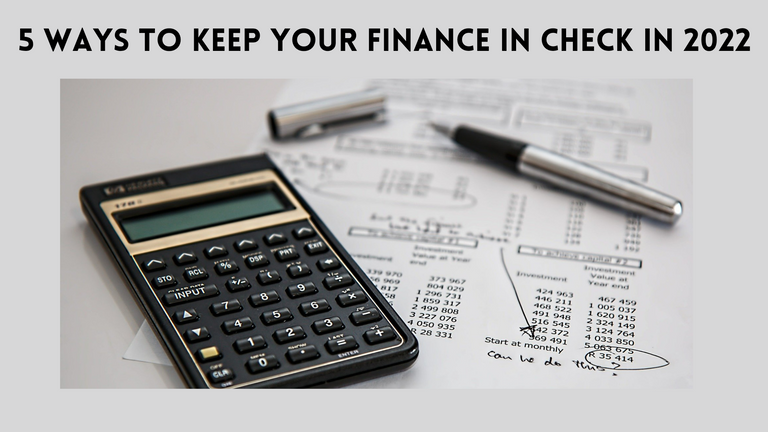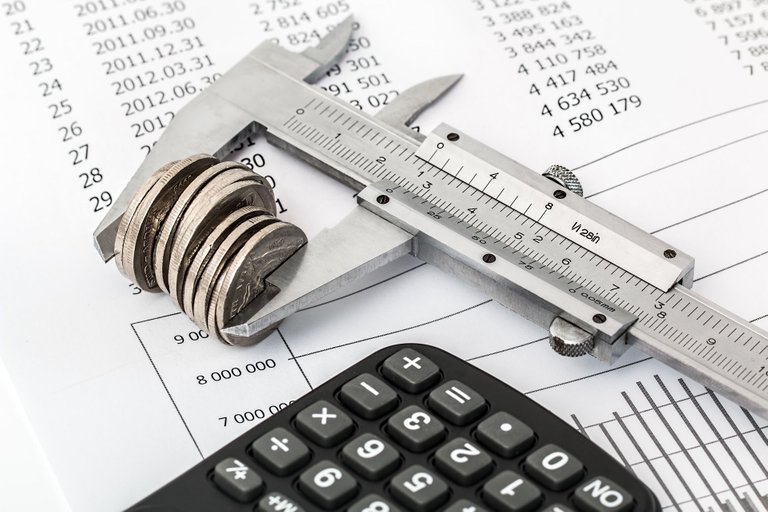Either we accept it or not, 365 days in
the year 2021 has come to an end. It’s not a surprise that the year was filled with so many events which occurred in the world of finance, most especially in the field of cryptocurrency. We saw the rise and fall of so many coins, the economic activities in the stock market, the bullish and bearish runs in the world of Forex and most surprising of them all, the spike in the inflation rate of goods and services in my motherland Nigeria. Also, it must be said that 2021 was my year of self-realization in the aspect of my finance and earning ability, because it was the year I came to know about Hive and its benefits. As mentioned earlier, the year 2021 has ended, which means a new one has begun. So it is only human for people to come up with their new year goals, future achievements, personal conquest or mission, new skills to acquire and many other positive things anyone might want to achieve in the new year. But many achieve all these and more but fail to add the most important goal to the list, which is the goal of keeping track of one’s finance. People tend to leave this goal out because they are of the notion that keeping track of their finance should be the work of a Financial Adviser, Investor or Bank Accountant, which is entirely wrong. Keeping track of one’s expenditure and revenue should be a personal responsibility, for it helps in preventing over-spending beyond self-income. So, this brings us to the article of the day, 5 ways to keep your finance in check in 2022. In this article, I will highlight five helpful tips anyone can make use of to keep a close track on their finance. And always remember this article is written solely on a Nigerian’s perspective, which means the information in this article is applicable to any Nigerian and helpful to anyone else that finds it helpful.

ADOPT THE SYSTEM OF USING A BUDGET
The first tip on the list is the use of a budget. A budget is simply a list of your income and expenditures. It contains all the things that requires you to spend money (expenditure) and what brings in money for you (income). Whatever that requires one to spend money could be classified as a need or want depending on how one may describe it. Expenditures could be groceries, health care, insurance fee, rent and others, while income could be salary or wage, investments, returns on investments, stocks, dividends, bonds, crypto and others. The use of a budget could be done manually or through the use of an app (technology) but what is most important is staying consistent, which requires financial discipline. A budget should be well detailed with all the specific expenditures and its cost, and the actual amount that comes in from one’s incomes should be well stated as well. This is because it helps to show how money leaves one’s possession and how much money is being made. Thereby making it easy for an individual to know when he or she is spending above his or her income. As stated in one of my recent posts, I talked about “Why January maybe more than 31 days" ,the presence of a budget does not only help you in remembering what is on your list, but it also helps you to prioritize what is more important over another, which is known as Scale of Preference.
REALISING YOUR NET WORTH
My second tip for keeping track of your finance is realizing your net worth. Realizing one’s net worth simply entails deducting your debts from your income. Then the amount left after doing this math is your net worth. For instance, if an individual makes a sum of $24,000 on a weekly basis but has a mortgage of $12,000 to pay on a weekly basis as well. To realize the individual’s net-worth, all we have to do is deduct $12,000 from $24,000 and we will be left with $12,000 which is the individual’s net worth. Most importantly, realizing one’s net worth will help in knowing how much money you have made and if you should strive to make more. Mindfully, it is also essential not to mistake your net worth for your self-worth.

PLAN FOR UNFORESEEN CIRCUMSTANCES
We can become good at using a budget and realizing our net worth, but we will never be able to tell what the future has installed for us. It is even said that “Life is what happens to you when planning”. All these brings me to my third tip, plan for unforeseen circumstances. After realizing one’s net worth and creating a budget, it is quite mandatory to set aside a certain amount of money for events like untimely sickness which can strike unannounced. The idea of not being able to predict the future is a major reason for life assurance. This package from insurance companies helps individuals in taking care of their family after their departure from planet earth.

BE WILLING TO CUT EXPENSE
I must say this might be the hardest tip of them all. It is quite hard to cut down on our expenses our human needs are insatiable, which explains why we have a growing need to acquire whatever we desire. This feeling can be a thorn in our finance if not treated with utmost caution. The act of converting every other thing aside from food, cloth and shelter into a basic need can be a major reason for overspending. Sometimes, it can even lead to the acquisition of items with ephemeral value. In an advent to avoid overspending, I came up with the fourth tip, be willing to cut expense. It’s not only about using a budget, realizing your net worth or planning for unforeseen circumstances, but one should also develop the zeal to cut down on his or her expense by knowing what is needed urgently and what is not.
DO A FREQUENT REVIEW
After the previous tips have been used, one should end his or her financial tracking exercise by conducting a frequent review of how much money has been spent and what the money was spent on. This frequent exercise could be done a daily, weekly, monthly or yearly basis depending on what timeframe suits you best. But what matters most is it should be done consistently.
In Conclusion...
There is a saying by i read in a book “When money realizes that it is in good hands, it wants to stay and multiply in those hands”. I hope that someone reading this finds this helpful.


I am @samostically,I love to talk and write about chess because i benefited alot from playing chess.sometimes i share my thoughts on life in general.I love to engage with others and i love communication.I believe life is all about staying happy and maintaining peace.
♟♟♟♟♟♟♟♟♟

The Image sources used in this article have been stated. Designs were done using canva
Posted Using LeoFinance Beta
Facts! One has to learn to define his/her priorities, that helps eradicate excessive spending & promote budgeting & the willingness to cut down expenses.
Very educative article bro! Love it.
You nailed it all, No your networth no go dey do pass yourself
Thank you. !PIZZA
You see that budget you mentioned is very necessary and coming to the part of cutting expenses both are really needed to keep one's finance in check.
In fact you nailed it with all points.
This is really helpful
Well done chanp
Yes , with a budget, you can cut down expenses. Thank you for stopping by my friend. I'm glad you found it helpful.
!PIZZA
That budgeting and cutting down expenses are paramount keys to financial freedom..You hit the hammer on the nail head @samostically
Thank you.... I appreciate your nice comment.
!PIZZA
The pleasure is mine.🙇